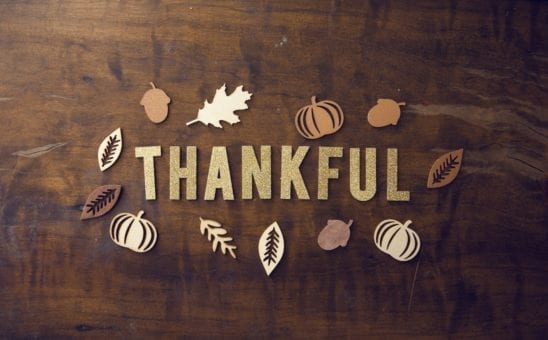Intuitive eating is an empowering path for those of us recovering from eating disorders and diet culture. With intuitive eating, we reject the idea that some foods are “good” and some foods are “bad.” Instead, we give ourselves unconditional permission to eat. We stop fighting our instincts when it comes to hunger, and we try to listen to our bodies and care for ourselves in a loving, understanding way.
Dealing with holidays comes with some additional challenges, though. Holidays add layers of stress and sometimes complicated family dynamics. Many holidays incorporate food, but few are quite as food oriented as Thanksgiving. The centerpiece of the holiday is the Thanksgiving meal, after all. For those recovering from an eating disorder, disordered eating, or diet culture, it’s natural to feel a bit nervous about Thanksgiving. Let’s take a look at Thanksgiving through an intuitive eating lens and find ways to make the holiday meaningful and a bit less stressful.

Photo by Priscilla Du Preez on Unsplash
1. It’s Just a Meal
In the past, we might have tried to “save our appetites” for Thanksgiving. Or we might eat certain foods to stick to a restrictive food plan. We don’t have to do that now. We can approach Thanksgiving in whatever way feels right to us. It’s not a temptation or a stumbling block. It’s just another meal. It’s a meal with some foods we might not always eat, and it’s a meal with family, but other than that, it’s just a meal, that we can approach like any other meal.
2. It’s Okay to Eat (or Not)
Honoring our hunger is one of the principles of intuitive eating. On Thanksgiving, we should try to feed ourselves the way we usually do. You don’t need to skip breakfast or not eat for the rest of the day after your Thanksgiving meal. If you get hungry, eat. We deserve nourishment.
3. Take Care of Yourself
We often feel a lot of pressure when it comes to family events. We might feel obligated to talk to relatives we don’t particularly enjoy or have to deal with pressure from relatives to eat (or not eat). In these situations, do what you need to do to take of yourself. If you need to step out for a minute and phone a friend, do it. If you need to leave, go for it. Do something that you find restorative, whether it’s going for a walk, reading a book, listening to music, or something else altogether.

Photo by Pro Church Media on Unsplash
4. Give Yourself a Pep Talk
Whether it’s our internal voices or the voices of families, it’s easy to get back into old patterns, especially at an event like Thanksgiving. If you find yourself beating yourself up or if you hear diet talk, take a moment to center yourself. Consider writing a few words or phrases in a note on your phone to remind you why you’re doing intuitive eating and how it’s improved your life. It might be something as simple as “it’s okay to eat.” Use whatever words or phrases feel helpful and powerful for you.
5. Remember You’re Amazing
Intuitive eating and eating disorder recovery are difficult. You’re awesome for being on this journey. It’s natural to feel discouraged sometimes. It’s okay to feel overwhelmed. Take a deep breath, participate in Thanksgiving in whatever way feels right for you, and let go of the rest. You’re amazing.
6. Call in Reinforcements
It’s okay to need help to cope with stressful events like Thanksgiving. If you’re already in treatment, talk to your treatment team. If you have an eating disorder and you aren’t in treatment, fall can be a great time to start. You might want to bring a supportive friend to Thanksgiving or connect with a supportive family member.
It’s okay to ask for help. It can be difficult, and we tend to think we can handle everything on our own. We don’t have to handle things on our own, though. Ask for the help that you need.
7. Focus on Giving Thanks
Gratitude can be a powerful tool for boosting our moods. This Thanksgiving, give some thought to what you have to be grateful for. Even small things count. We might be thankful for our supportive family members, our pets, our natural surroundings. Give thanks, and do the best you can with the holiday. We don’t have to be perfect.
Melinda Sineriz is a freelance writer and fat acceptance advocate. Read more of her thoughts on Twitter or visit her website to learn more.